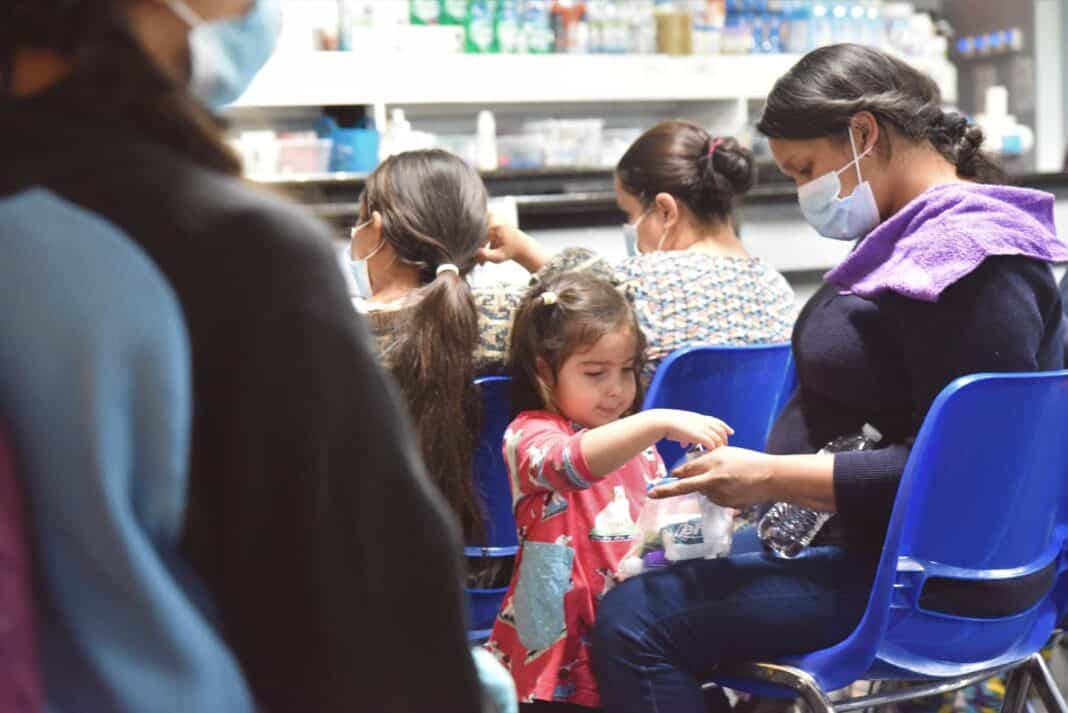
As the Biden administration searches for ways to stem the unprecedented flow of Central American migrants to the country’s border with Mexico, District 34 U.S. Rep. Filemon Vela Jr. weighed in on Wednesday with an official statement of his own.
“There is no perfect fix here,” he said. “The administration is doing the right thing because the law requires that we process unaccompanied minors. However, we are in the middle of a pandemic and our systems are being overwhelmed.”
Every year hundreds of thousands of people from the Northern Triangle region of El Salvador, Guatemala and Honduras flee extreme violence and poverty to make the trek north through Mexico in hopes of securing asylum in the United States, but never have there been so many as there are now.
Vela called for a practical approach. Noting that 13 percent of UACs — unaccompanied alien children — are under the age of 12, he said one logical approach would be to return the older teenagers to their home countries while providing funding for a United Nations-supervised effort to properly care for those children once they’re returned to their countries.
“Then once the pandemic is under control you could phase the program back in so that there would be some semblance of control over the process,” Vela said. “I think that this would help relieve the current burden.”
Also on Wednesday President Joe Biden tapped Vice President Kamala Harris to deal with the migrant situation by working with Mexico and the Northern Triangle countries.
Vela, who announced March 22 that he would not seek reelection to his congressional seat in 2022, also addressed the migrant issue during an interview about that decision. As he would emphasize in Wednesday’s statement, Vela said the reason the U.S. government is allowing all unaccompanied minors to cross into the United States is because the law requires it.
“The law says that when unaccompanied minors come across that we have a responsibility to take care of them,” he said. “Trump was violating the law when he initiated a policy whereby the government was no longer taking care of these kids. Maybe in retrospect the Biden administration could have been prepared, and perhaps should have anticipated, the consequences of changing the policy that fast. I think right now they’re doing everything they can to wrap their arms around it.”
The result is that the government bureaucracy, already busy implementing a mass vaccination program, now has even more to deal with due to the flood of migrants, Vela said.
“I agree with the decision to let these kids in, because that’s what the law says, but I think I would have been more cautious about it,” he said. “I would have been more patient about it in light of COVID.”
Vela admitted he himself didn’t anticipate the surge, but said that if he’d had the opportunity to advise Biden he would have recommended allowing more time for more U.S. residents to get vaccinated, and in the meantime create a system for processing unaccompanied minors that featured a testing and vaccination program for minors and border agents.
“And set up a system so that we don’t have overcrowding at the border patrol stations, so that the health and human services systems are able to accept these kids within the 72 hours required by law and be able to place these children in a place that provides all of the conditions that the law allows,” Vela said.
In contrast to the unaccompanied minor issue, Biden’s discontinuation of Migrant Protection Protocols, a Trump policy requiring asylum seekers to remain in Mexico until their hearings instead of being allowed to wait in the United States, has been a “smashing success,” Vela said. Within a matter of 10 days the migrant camps in Matamoros an other border cities have been mostly emptied, he said.
“I think there are 50 or 60 migrants left (in Matamoros),” Vela said. “It’s complicated why they had to remain, but by and large the cooperative effort between the federal government, the city and the (non-governmental organizations) went extremely smoothly. I view the MPP situation a little bit differently than the unaccompanied minor situation.”





